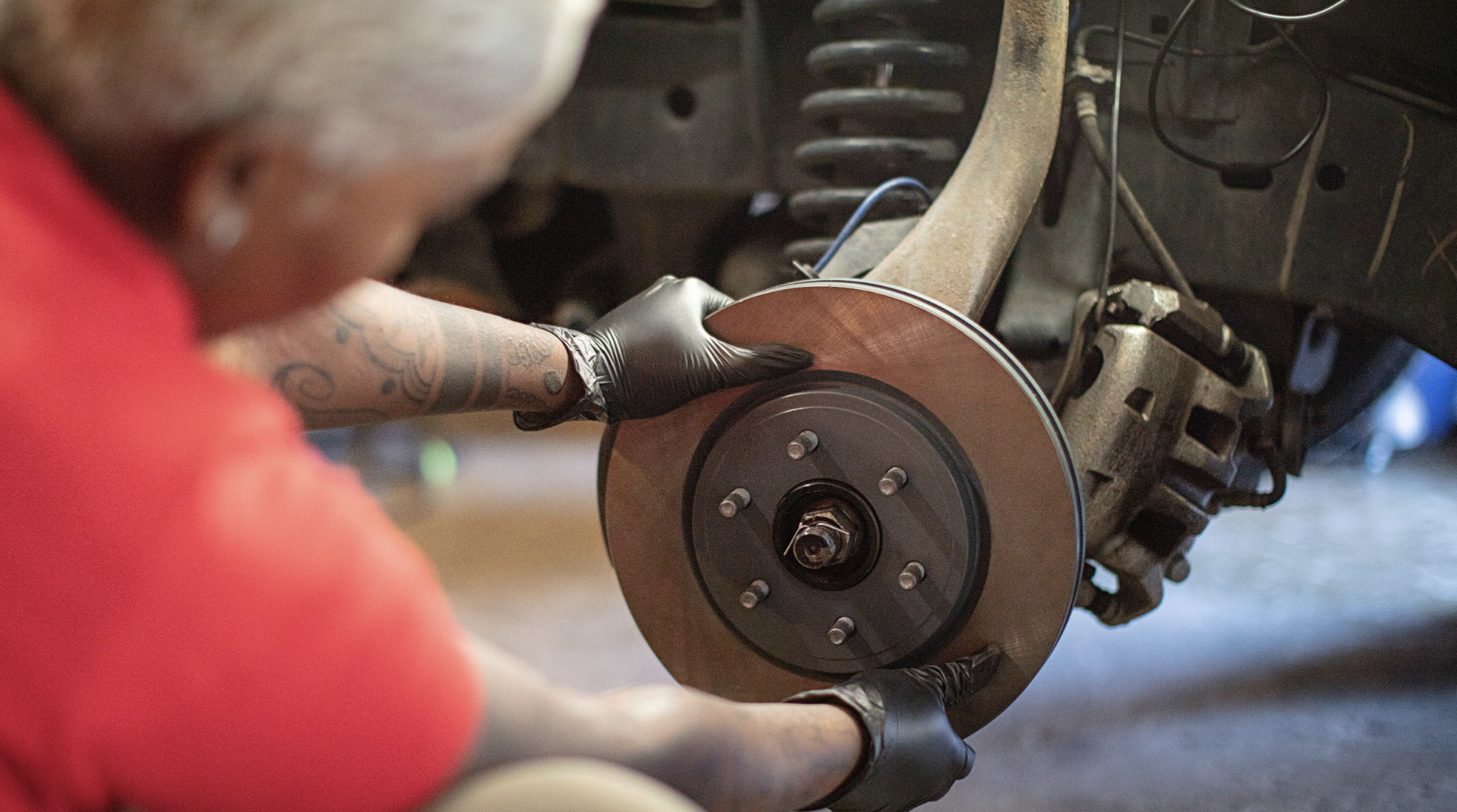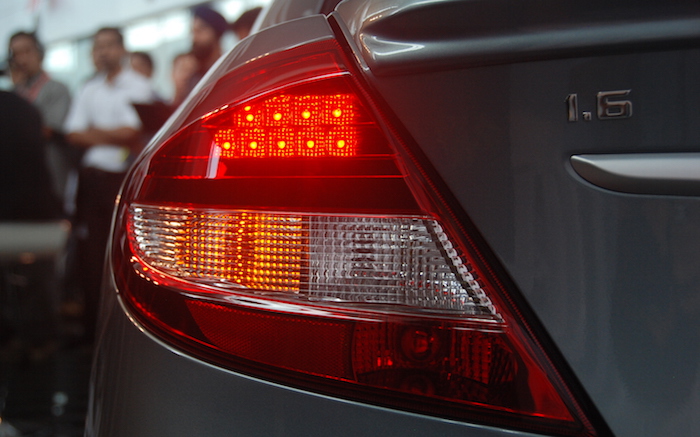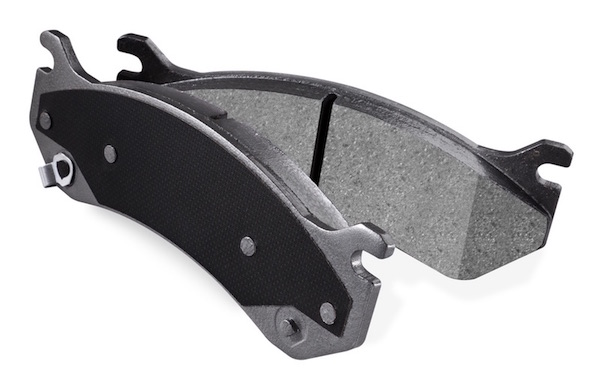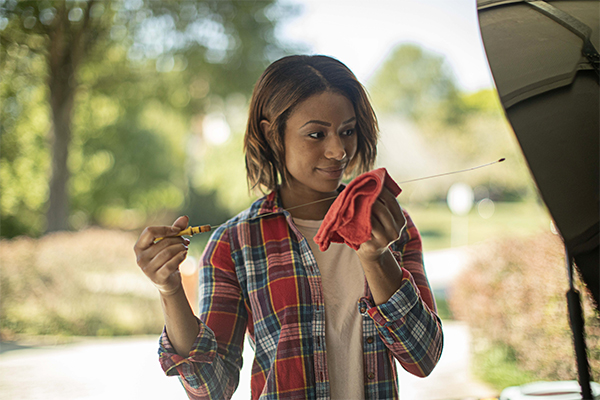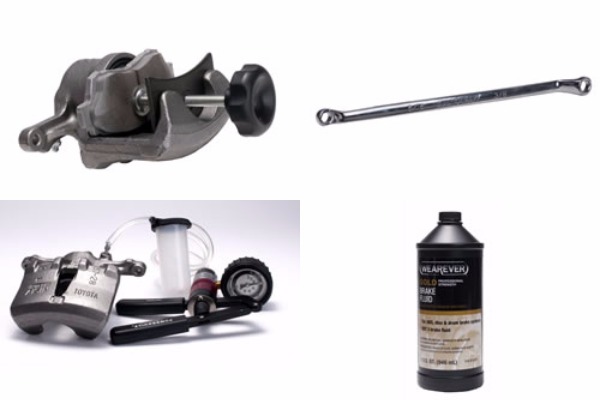Brake work is one of the most important maintenance procedures you can have done on your vehicle. And because brake pads and rotors are designed to wear over time, it's a job that's going to come up a few times over the vehicle's life cycle. So, how much should it cost to replace your brakes? Unfortunately, the answer is dependent on many factors, but we’re going to break it all down for you. Read on.

Factors that affect the COST to replace brakes
- DIY vs. paying a pro. We don’t have to tell you that you’ll save money by replacing brakes yourself. Brakes are a critical part of your vehicle, though, so paying the additional labor may be necessary in order to keep you and others on the road safe. Regardless of which camp you’re in, Advance has helpful resources. You can jump down and view them here.
- What kind of vehicle are you driving? Brake pads for, say, a Dodge Ram 3500 Cummins truck will cost a lot more to replace than brake pads for a Ford Focus. The bigger and heavier the vehicle, the higher the cost. It's just part of the equation.
- What brand of vehicle are you driving? Typically, all sorts of replacement parts for European makes like BMW, Mercedes, Jaguar, and Audi will cost more than their counterparts on American vehicles. The same goes for many Japanese vehicles as well. Also, keep in mind that labor rates at repair shops can vary with brand, too. This is because it may take a technician longer on one brand than another to get the job done.
- What brand of brake pads do you want to get, and what material? The quality and cost of aftermarket brake pads can vary a great deal. The friction of brake pads is composed of organic, semi-metallic, or ceramic materials, all of which have different performance properties and different price points. Premium national brand brake pads from a manufacturer like Brembo, Akebono, or Wagner will be higher. Store brand aftermarket pads are generally lower in price, and original equipment pads from your vehicle's manufacturer are about the most expensive option of all. For premium performance and safety that can meet or even exceed manufacturer parts without busting your budget, we recommend Carquest Platinum and Gold brake pads and rotors.
- What kind of driving do you do? If you like to push your vehicle to its limits and need a performance-style braking system, you're going to pay more. High demands mean a higher price tag.
ACTUAL COST
So, back to the original question: How much will it cost to replace brake pads? As you can see, it's not an easy answer. But on a typical vehicle, we estimate the average cost of brake pads to range from $30 to $50 per wheel. We also recommend replacing rotors with every pad replacement for the best performance (and to avoid an annoying brake pedal pulsation). An average rotor ranges between $40 and $70 per wheel. For a DIY brake replacement, this adds up to an estimated range of $140 to $240 per axle.
Thinking about paying a professional to replace your brakes? You'll want to keep in mind a couple of additional costs. The obvious is that you'll be paying someone to do the labor, and that alone can double your overall cost. You’ll also notice a parts mark up, although a solution here is to purchase your own parts and only pay a pro labor to install them. Labor rates can vary widely, but we’ll assign an average labor cost of $200, raising your total cost for a brake job closer to $350 to $500 at a repair shop.
We’re here for you
Now that you have an idea of what you can expect to pay for brakes, you’ll likely have some choices to make. Do it yourself? Pay for the best? Can you get away with not replacing the rotors? We have a collection of resources to help you make the best decisions:
And, if you’ve decided to tackle this job yourself or just want to see what’s involved, here are some additional resources:
Finally, Advance makes it easy for you to get the parts you need fast. Use the “add a vehicle” tool online or in the mobile app, or simply stop by your local Advance to get a Team Member’s expert recommendations.


